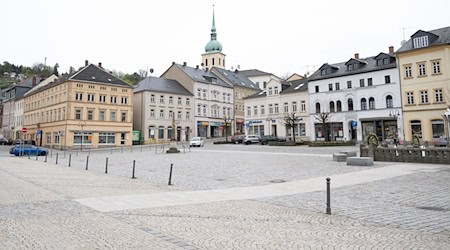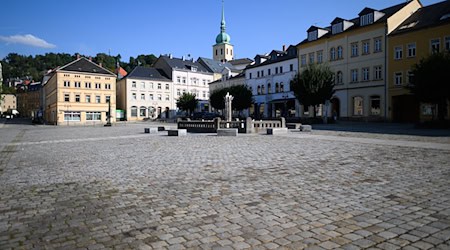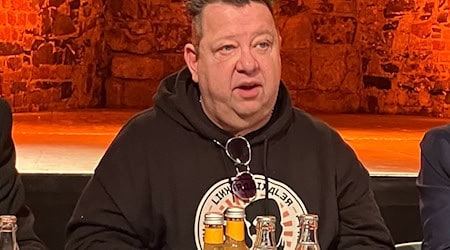Sometimes you win, sometimes you lose - this is how Federal Minister of the Interior Nancy Faeser comments on the Federal Administrative Court's decision on the "Compact" magazine and the massive criticism of her administration that has resulted. She will continue her fight against "enemies of the constitution", says the SPD politician. The head of the right-wing extremist media company, Jürgen Elsässer, triumphs one day after the decision in the summary proceedings, which temporarily suspended the ban.
Faeser is self-confident
"The Basic Law expressly provides for the instrument of banning associations in order to protect democracy from enemies of the constitution," says Faeser at an appointment at Berlin's Ostbahnhof. The Minister has actually come here to present a Federal Police contact point for female victims of domestic violence. But she also has to take a stand on the previous day's court defeat. Faeser emphasized that in view of the current threat situation, it was important to use these instruments of a defensive democracy. The Federal Ministry of the Interior is sticking to its view with regard to the main proceedings. Faeser, who has been walking with crutches for weeks due to an ankle injury, emphasized: "We will not let up in our actions against enemies of the constitution."
The minister banned "Compact" on July 16. She justified this by stating that the magazine was a "central mouthpiece of the right-wing extremist scene". The Federal Administrative Court provisionally lifted the ban in summary proceedings on Wednesday. In particular, it raised doubts about the proportionality of the ban. This means that the magazine can be published again for the time being, subject to conditions. A final decision will be made in the main proceedings.
Faeser: "Quite normal procedure"
It is good that such bans are also reviewed by the courts in a constitutional state and corrected if necessary, says Faeser. She referred to ban orders issued by her ministry in the past, which were upheld in court, and explained that it was positive that the court had confirmed in principle that it was possible to ban an association against a media company such as "Compact". Now we have "lost in parts", says Faeser. She adds: "It is a completely normal process."
After the provisional failure of the "Compact" ban, Faeser was criticized by the CDU/CSU and AfD, but also by her coalition partner FDP. "The urgent decision against the "Compact" ban casts a devastating light on Ms. Faeser's expertise," said Alexander Hoffmann, Parliamentary Secretary of the CSU in the Bundestag. Konstantin Kuhle, deputy leader of the FDP parliamentary group, described the court's decision as "embarrassing for the Federal Ministry of the Interior". The "Compact" magazine can now present itself as a victim, Kuhle told "Der Spiegel". What no one is saying, but many are probably thinking, is that the defeat in court could play into the hands of the AfD in the upcoming state elections in Thuringia, Saxony and Brandenburg in September, which had unsuccessfully sued in two instances against the classification of the entire party as a suspected right-wing extremist case. "Faeser must now take her hat off," demands AfD chairwoman Alice Weidel.
Editor celebrates stage victory
While the minister has to answer uncomfortable questions, the head of "Compact" is enjoying the moment. "Compact" has triumphed over "the authoritarian, not to say fascist, encroachments of Interior Minister Nancy Faeser", says Jürgen Elsässer to journalists in Berlin. And: "Yesterday was a victory of David over Goliath, a victory of democracy over dictatorship and a victory of the people over the regime."
The August issue, which had been held back for the time being, can now be delivered, says Elsässer. However, the publisher has not yet been able to fall back on its usual distribution channels, as documents and equipment have been confiscated. "We have no desks, no chairs, no computers, no documents, no files. We have nothing at all."
"Compact" boss hopes circulation will increase after reports of ban
However, he expects the reach of the magazine and broadcaster to expand. "Before Faeser's attack, perhaps two million Germans knew us. Now it's probably 60 million." Elsässer said: "Everyone wants this magazine now."
One of Compact's lawyers, Laurens Nothdurft, rated the chances of success in the main proceedings as "enormously high". However, it will only be possible to say more precisely once the Federal Administrative Court's written reasons for the decision in the summary proceedings are available. Legal action is being taken at state level to ensure the rapid return of the confiscated equipment.
In any case, the officials only have a few days left to copy the contents of the media company's writings and data carriers. "The evidence seized for the ban on the association will also play a further role in the main proceedings," says Faeser. This is currently being evaluated.
Employees' past not a problem for Elsässer
In the ban order published by Elsässer's lawyers, the Federal Ministry of the Interior also listed information about several employees' links to the far-right party "Die Heimat" (formerly NPD). Elsässer says that "Compact" has never had anything to do with the NPD, but also: "It is true that people who were previously or perhaps currently involved with the NPD have written for us." However, they were acting within the framework of the free democratic basic order. He never asks to see CVs and job references at job interviews.
"Toppling the regime" - editor-in-chief still sees himself as a democrat
In its ban order, the Ministry of the Interior quoted a sentence by Elässer that he wants to be understood differently. "This sentence "This regime must be overthrown" from me is one of the most misunderstood sentences from my mouth," he says. His explanation for the quote: he is accused of wanting to overthrow the free democratic basic order or the free democratic system. "My aim was always to restore the free and democratic basic order by overthrowing the so-called regime."
Copyright 2024, dpa (www.dpa.de). All rights reserved










